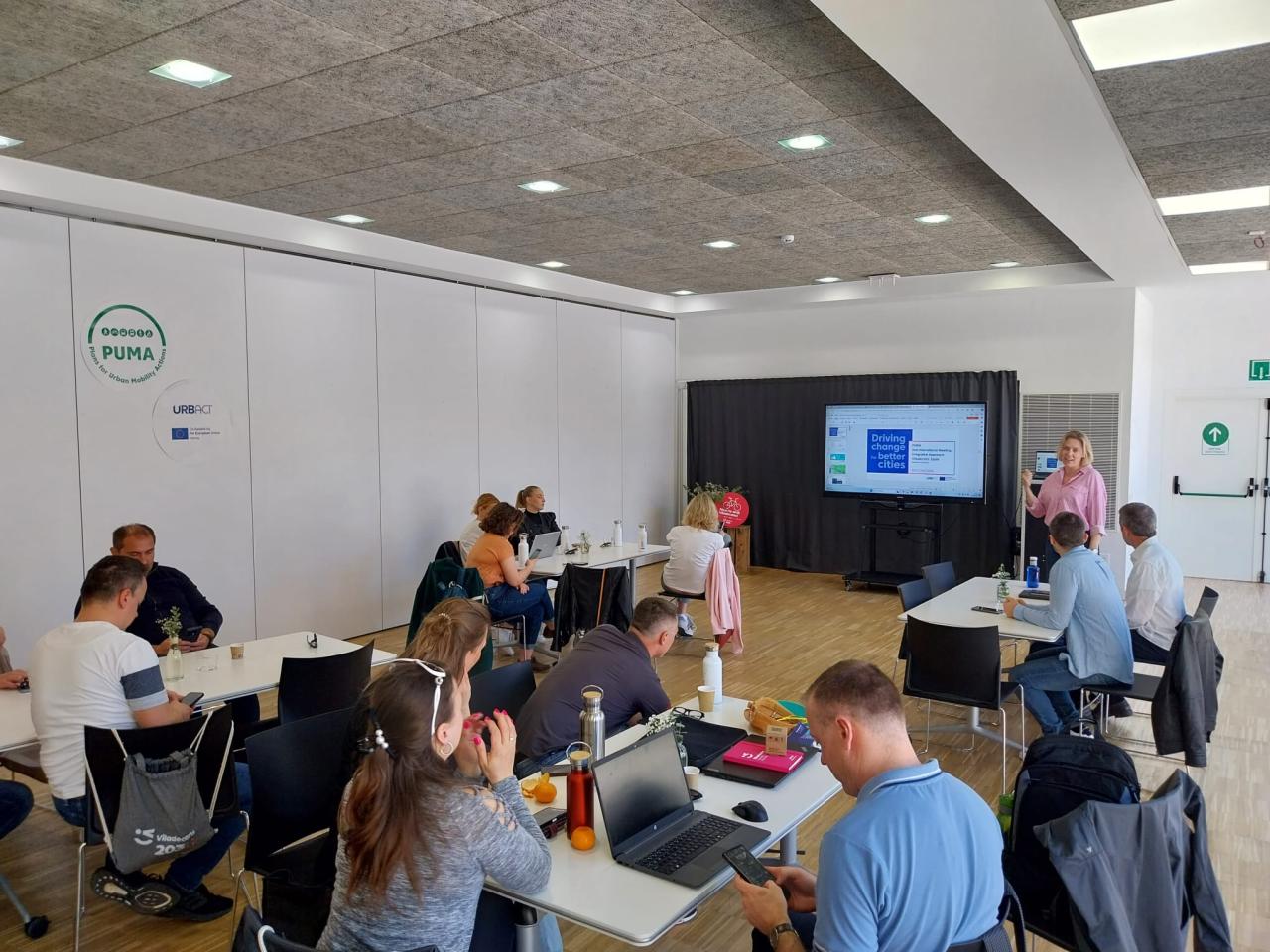At the beginning of 2024 PUMA network activities have been positively assessed and our network received the greenlight from URBACT for the continuation of the activities. Therefore, from 10.04. to 11.04. PUMA network partners met again for the second transnational meeting in the city of Viladecans, Spain.
On the first day, PUMA Lead Expert Karolina Orcholska presented the final PUMA network baseline study and network roadmap, aspects of the integrated approaches in the development of the action plans.
Lead expert also led partners in a self-assessment of integration, refining potential mobility actions in details in their cities, using tools and workshop methods from the URBACT toolbox.
The host partner presented their mobility strategy, planned and implemented projects. Viladecans city fascinated other network partners with their strong teamwork, commitments and great results regarding sustainability and green development. We are happy that Viladecans city have got the recognition of Green Leaf city 2025.
On the second day, Viladecans city led network partners to the intermodal hub, cycling lanes and connections. Partners had a possibility to propose solutions for improvements in the existing infrastructure in Carretra del Prat street, Atrium roundabout and Mare de Deu de Montserrat roundabout cycling connections.
At the end of the day, partners agreed that now the main task is to continue work on their Integrated Mobility Action Plans, which are main desired outcomes from this project.
All partners agreed to consider and implement such crucial aspects in the development of their Integrated Mobility Action Plans:
Integration of economic, social and environmental challenges;
Join up solutions and minimise the effects of negative externalities;
Develop partnerships at local level, implement small scale actions and testing activities;
Bring together main actors around a specific challenge;
Align policies, interventions and funding upwards;
Ensure cooperation takes place between adjacent municipalities in functional urban areas;
Integrate and combine physical investments with investments in human resources.
Also, partners Liepāja Municipality, Dienvidkurzeme Municipality, Public Institution Žaliasis regionas, Development Organisation of Municipality of Larissa, University of Zagreb Faculty of Transport and Traffic Sciences, Municipality of Gdansk - Gdansk Roads and Green Areas Administration, Municipality of Cento, City Council of Viladecans, Regional Development Agency of Northern Primorska Nova Gorica agreed continue to share their good practices and outcomes regarding mobility projects and initiatives, so stay tuned for more interesting news!


